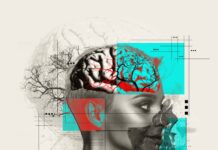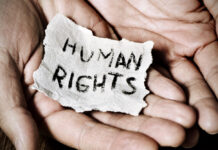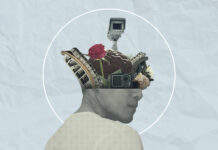A new qualitative study, posted as a preprint on SciELO, examined how people in Colombia experience psychosocial disability in their daily lives.
The project was led by Lina María González Ballesteros, Mario Sebastián Rodríguez Durán, and Anny Juliana Fonseca Quintero, affiliated with Colombian universities and research institutes. Together, they sought to understand how stigma and self-stigma affect people with psychosocial disabilities across different regions of the country.
“In Colombia, a country marked by armed conflict and deep social inequalities, stigma and perceptions of psychosocial disability critically influence access to rights and services,” the authors write.
“Although official policies promote inclusion and rehabilitation, they often fail to connect with local realities due to the persistence of stigma and discrimination, the effects of self-stigma on the subjective appropriation of rights, and the limited meaningful participation of persons with disabilities in key processes such as peacebuilding”
The results highlight not only the persistence of stigma in Colombia but also its role as a defining barrier to inclusion worldwide. Patients described being marked by diagnoses, excluded from workplaces and public services, and, in many cases, internalizing the prejudice they faced.
Their accounts connect to a broader global conversation in which psychosocial disability is understood as a rights-based framework meant to resist exclusion and the colonial legacies of psychiatry, yet one that remains difficult to translate into daily life. The Colombian study underscores how legal reforms alone cannot dismantle stigma, and why meaningful change requires shifting cultural attitudes, institutional practices, and power dynamics in communities.
















This article is ridden with irony and unconscious hypocrisy. You use the term psychosocial disability here uncritically, accepting their terminology, so this is now your terminology also. This notion of psychosocial disability is a new framing of the previous notion of ‘mental health’, but the term disability is itself a damning diagnosis, one that affirms the state of being disabled by our psychosocial trauma as kind of ‘natural’, not itself a symptom of psychosocial pathology. You affirm this crippling of human beings by the social process when you affirm their status as disabled, which means not healing, and also disempowered, crippled by their injuries – but the actual reality is that human beings can and should and must heal, but as a society we don’t understand the natural simplicity of healing, and we can prove it right now to ourselves. All animals of nature are healthy when they live in natural circumstances with natural freedom, and human beings in natural circumstances with natural freedom to dispose of their actions and to communicate their realities without restriction or hindrance will begin healing, but social or economic insecurity of any kind is an unnatural circumstances that makes healing impossible, unnatural because the only thing that is not part of the natural world is the social historical world, because social historical accumulation, entrenchment and proliferation of human forms (what we call civilization outwardly and the forms of the intellect and social memory inwardly) is that which departs from the nature process and instead is the social historical process. So we have great difficulty in finding the right conditions within which to heal, and disability due to being unable to heal is therefore not some kind of natural consequence of psychosocial injury which we should accept and affirm as a disability but instead the fact that people are not healing is itself part of the total social pathology which includes the creation of social environments that both destroy health while at the same time make natural healing impossible. Your conceptualization therefore actually is a continuation of the same kind of harm that we see in all models that assert non-factual ideas as ontological realities, another example being the biomedical model. This notion of psychosocial disability which you assert without explanation or justification as a reality is a modern ancestor of the same intellectual pathology that produced the biomedical model and all the other lies, delusions and distortions in the field.
To illustrate what I meant when I described a certain hypocrisy in this article. You write that the arguments in the study “connect to a broader global conversation in which psychosocial disability is understood as a rights-based framework meant to resist exclusion and the colonial legacies of psychiatry” – but this assertion of the idea of psychosocial disability – a concept from the same family tree as Western psychiatry, and not really part of a “global conversation” but rather a conversation in a field dominated by Western intellectual idiocy – is itself a colonial legacy of this tradition which includes psychiatry, because you are reframing the actual social phenomenology through a Western conceptual framing that inherits the uresolved problems of that which it criticizes. So there is obvious hypocrisy here. And you go on to say: “The Colombian study underscores how legal reforms alone cannot dismantle stigma” – calling it a disability is a false assertion imposed by a label hence actually itself would create what we call stigma – namely, the stigma that if you have a psychosocial injury a normal and implicitly, an acceptable consequence of this is to be disabled, which when we’re talking about the terrain of mind implies mentally disabled, hence the idea of the unreliable narrator – another stigma – is still supported by this non-factual framing. You go on: “meaningful change requires shifting cultural attitudes, institutional practices, and power dynamics in communities” – there is so much false assumption embedded in this statement, namely that we address the problem of psychosocial disability discrimination by changing cultural attitudes and institutional practices and power dynamics within communities, which implies affirming the facts of domination by prevailing cultural attitudes which merely reflect social conditioning, affirming the domination of the problem you call psychosocial disability by institutions hence their institutional practices, so assuming a top-down, academic, authoritarian solution to the problem of psychosocial injury, affirming subjection to power dynamics in the solution to the problem etc etc etc. So this article is really quite a vivid example of that which it praises the studies for criticizing, all this when the article itself reproduces all the problems that are to be found in that which it’s criticizing. See all the various levels of irony involved in this. It is a consequence of the confusion created by confounding concepts and actualities, and is akin to a form of madness, and is perhaps a good example of what we have been referring to as a psychosocial injury which again is a false and limited, limiting concept because the idea of the psychosocial does not emphasize the biological, neurological, sensory and affective/emotional aspects of human existence – and all conceptual framings will create limitations so it is not good enough to expand your concept – you have to eliminate it all together in order to see and understand things as they actually are.
I am not being clever or critical here – I hope I am just seeing things clearly and communicating exactly what I see. Seeing things as they are, without conceptual distortion, is like having paint stripping eyes, so there is an opportunity to put aside your conceptual prejudices for a moment and turn to the fact, not to agree or disagree with what I say but to consider the truth or otherwise of what I say by investigating the facts, by looking into it and discovering these facts, and this exposure to the facts, to the truth, to the actual is that which transforms, is that which liberates intelligence, is that which produces clarity, so it is never an injury to receive criticism like this if you really understand the fundamental importance to seeing things exactly as they are, only I say again this is not criticism. It’s human honesty because human honesty is demanded in the face of serious human problems.
Report comment
“This content is restricted to buyers of .” … what?
Report comment